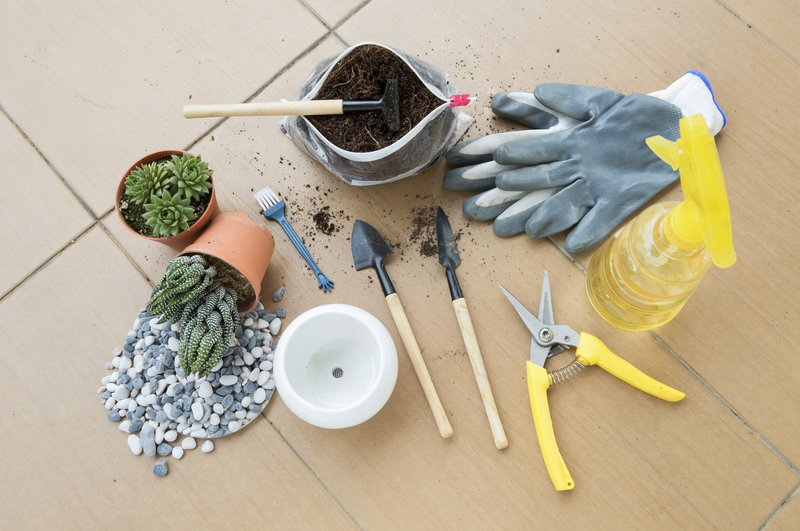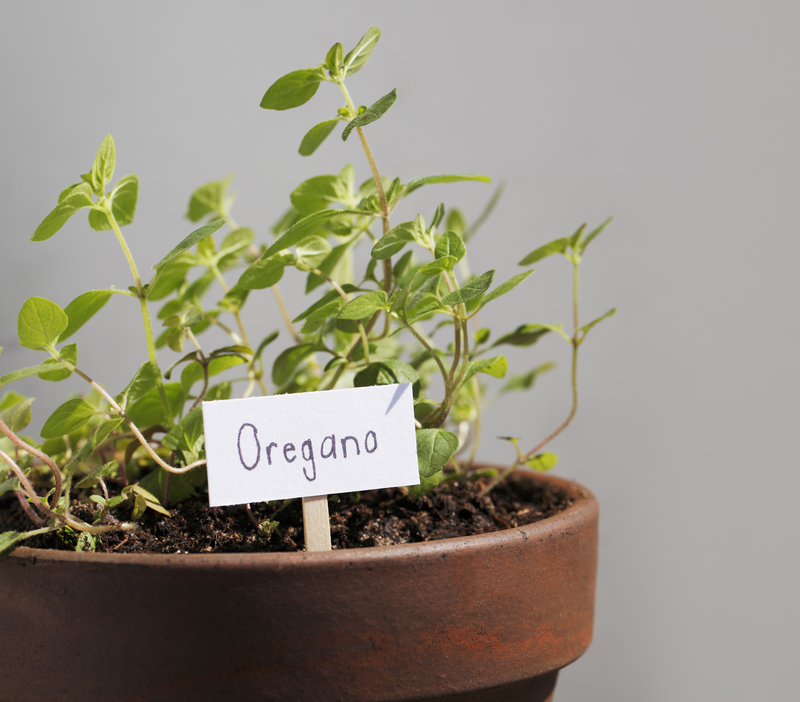Transform Your Space: 9 Beginner Gardening Tips You Can't Miss
Posted on 19/09/2025
Transform Your Space: 9 Beginner Gardening Tips You Can't Miss
Are you looking to rejuvenate your home, balcony, or backyard? Gardening is a wonderful way to breathe new life into your surroundings. If you're just starting out, you may feel overwhelmed by all the choices and instructions, but fear not! This beginners' gardening guide will walk you through essential tips, creative ideas, and pro secrets that'll help transform your space into a blooming haven. Let's dig in!
Why Start a Garden?
Whether you have a sprawling backyard or a cozy apartment balcony, beginner gardening is accessible for everyone. Gardening not only enhances your home's aesthetics, but it also has health benefits, such as stress reduction and improved air quality. Additionally, nurturing plants can provide a gratifying sense of accomplishment. So, what are you waiting for?
- Boost curb appeal and property value
- Grow your own healthy fruits, vegetables, or herbs
- Connect with nature and improve mental well-being
- Create a natural sanctuary for friends and family

9 Essential Gardening Tips for Beginners
1. Start Small and Simple
Resist the urge to go big from the get-go! As a novice gardener, begin with a few manageable planter boxes, pots, or a compact garden bed. This allows you to master essential skills without being overwhelmed.
Tip: Choose easy-care plants, such as herbs, lettuce, or marigolds, which thrive in various spaces and don't require constant attention.
2. Choose the Right Plants for Your Location
Assess your space before buying plants. Consider sunlight, shade, wind exposure, and soil type.
- Sunny spots: Perfect for tomatoes, basil, petunias, and zinnias
- Shady areas: Hostas, ferns, and impatiens excel here
- Balcony gardens: Opt for container-friendly varieties like cherry tomatoes, lavender, or succulents
Planting what thrives in your unique conditions will set you up for gardening success.
3. Understand Your Soil
Healthy soil is the backbone of a thriving garden. Conduct a simple soil test or use a DIY kit from your local garden center. Check for pH level, drainage, and organic matter content.
- Add compost or well-rotted manure to enrich poor soils
- Consider raised beds with fresh garden soil for better control and easier management
Investing time in soil improvement pays off with lush, healthy growth!
4. Mind Your Watering
Water deeply, but not too frequently. Plants need water at the root zone, not just on the surface. Early morning is the ideal time for watering to reduce evaporation and prevent fungal diseases.
- Stick your finger into the soil - if it's dry an inch below the surface, it's time to water
- Use mulch to retain moisture and suppress weeds
- Avoid overwatering: this can drown roots, especially in pots with poor drainage
5. Feed Your Plants
Nutrients are as vital as water and sunlight. While new garden soil often contains nutrients, potted plants can quickly deplete their supply.
- Use organic fertilizers or slow-release feeds for consistent nutrition
- Feed vegetables and flowering annuals every few weeks during the growing season
- Always follow label directions to avoid fertilizing too much, which can harm your plants
Healthy, well-fed plants will reward you with lush growth and vibrant blooms.
6. Plant and Repot at the Right Time
Timing matters in the gardening world. Most plants prefer to be moved in spring or early fall when temperatures are milder.
- Check seed packets or plant labels for optimal sowing and transplanting dates
- Repot houseplants every couple of years, or when you notice roots emerging from the pot's bottom
Giving plants the best start helps them thrive from day one.
7. Stay on Top of Pests and Diseases
No garden is totally immune to pests or plant diseases. The key to beginner gardening success is vigilance. Inspect your plants weekly for signs of trouble.
- Manual removal: For small infestations, hand-pick pests like snails or caterpillars
- Natural remedies: Neem oil, insecticidal soap, or home-made garlic spray are eco-friendly solutions
- Remove and discard diseased plant parts promptly
Healthy plants are less susceptible to issues, so proper care goes a long way!
8. Regular Maintenance Is Key
A beautiful garden doesn't happen overnight, and it certainly won't stay neat unless you give it regular attention. Maintain your garden by:
- Weeding: Pull weeds before they go to seed and take over
- Deadheading: Remove spent flowers to encourage fresh blooms
- Pruning: Trim shrubs and trees in the correct season to promote healthy growth
- Raking fallen leaves to keep beds tidy and prevent pests
Consistency is the secret to a garden you'll be proud of year-round.
9. Learn and Experiment
Gardening is a journey, not a destination. Every gardener makes mistakes - and that's how you learn! Start a garden journal to record what works, what fails, and your favorite plant combinations.
- Join online gardening communities or local clubs for support and inspiration
- Experiment with different types of plants, layouts, and soil amendments
- Celebrate small victories, like your first tomato or blooming flower
There's nothing more rewarding than watching your space transform, season by season, into a living masterpiece.
Transforming Your Space: Creative Gardening Ideas
Now that you've mastered the basics, it's time to let your imagination take over. Here are a few ideas to help transform your space with a garden:
- Vertical gardens: Use shelves, pallets, or wall planters to create lush, living art - perfect for small spaces
- Herb spirals: Stack stones or bricks in a spiral to grow a compact, diverse herb bed
- Container gardening: Mix and match pots of different sizes and colors for visual appeal and flexibility
- Raised beds: Organize vegetables, flowers, or pollinator plants in neat, accessible beds
- Fairy gardens: Add whimsy with miniature figurines, small houses, and pathways surrounded by low-growing plants
Personalize your garden to reflect your style and make your space truly your own.

Beginner Gardening FAQs
-
Q: How much sunlight do my plants need?
A: Most edible and flowering plants need at least 6 hours of direct sun, but shade-lovers (like ferns or impatiens) thrive with less. -
Q: What's the best way to water my plants?
A: Water at the base of the plants in the morning for best results, and use mulch to retain moisture. -
Q: How do I choose the right soil?
A: Use soil appropriate for your plant type: light, well-draining mixes for succulents; richer, moisture-retentive mixes for vegetables and annuals. -
Q: Can I grow food in containers?
A: Absolutely! Many vegetables, fruits, and herbs do wonderfully in pots, especially with proper sun and water.
Your Garden Awaits!
Ready to transform your space with gardening? Start with these nine tried-and-true gardening tips for beginners, and don't be afraid to get your hands dirty. With a bit of patience and creativity, you'll cultivate a space that's as beautiful as it is rewarding.
If you found these beginner gardening tips helpful, why not share your progress? Tag your garden photos online using #TransformYourSpace and inspire others on their own plant journeys.
Happy gardening!
Latest Posts
Balance and Beauty: Zen Garden Ideas for Your Yard
Innovative Approaches to Garden Seating Design
Transform Your Landscape: Cutting-Edge Hedge Trimming Shapes and Methods
Optimize Your Garden's Beauty with These 3 Weed Solutions
Transform Your Space: 9 Beginner Gardening Tips You Can't Miss

